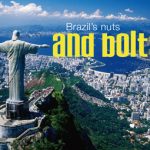Municipal mismanagement
You may have seen the story about KwaZulu-Natal (KZN) municipalities wanting to introduce a fuel levy to bail them out of their perilous financial circumstances. The vehicle owners who will be paying that levy are therefore quite entitled to raise an eyebrow in query.
In 1994, municipal structures worked. However, government then had to extend those structures to accommodate people who previously lacked running water, electricity, sewerage and the like. Let’s look at the equation: existing infrastructure was financed by existing ratepayers and was self-sustaining. New infrastructure was financed by existing ratepayers, new ratepayers and government subsidies, and should therefore also be self-sustaining. So, logically, the municipalities should still be on a firm financial footing.
But they’re not. You only have to open a newspaper to read about the implosion of services at municipal level. This is not because the municipalities don’t have the money; it’s because they blow it on non-essentials, siphon it off into the pockets of corrupt officials, or simply lack the know-how to spend it properly. Ignore the posturing by certain politicians about “imperialism” and “colonialism”; urbanised life as we currently know it is a colonialist, imperialist inheritance without which we would find our lives most inconvenient. (Bucket toilets, anyone?) It evolved to this point over thousands of years and, like the empires that spawned it, it will leak money and eventually collapse unless it’s run with an exceptionally tight fist and beady eye.
In KZN, the leaks have apparently become torrents, so enter the motorist stage left. With rail transport in disarray, motoring and trucking are the backbone of the country and South Africa can’t do without them. Since anything which is essential can be taxed out of sight in the full knowledge that those paying the tax have no alternative, vehicle owners are an obvious source from which to extort the sums municipalities have lost to shocking financial management, corruption, buffet luncheons, self-congratulatory newspaper adverts, luxury cars and other trappings of officialdom.
Enough, I say. Vehicle owners already contribute a tidal wave of money to the fiscus. Rather than being spent on road safety or upgrading transport infrastructure, this money cross-subsidises maladministration, just like municipal traffic fines do. And now road users might be fleeced out of even more cash, which is not unlikely to vanish into the yawning chasm of municipal excess.
If the KZN legislature falls for this lark, it will be the first real admission that, despite their rhetoric to the contrary, our politicians are too attached to the legacy of colonialism to do without it, but mistakenly think that ponzi financing will cure all ills. Many corporations, and indeed empires, have despairingly used the end-game strategy of looting convenient resources when survival was threatened by inefficiency and bloat. In almost all cases, the relief was short-lived and collapse soon followed.
KZN’s municipal empire is likewise ignoring the reasons behind its financial crisis; perhaps it should first ensure that all municipalities receive unqualified audits. But no, the vehicle owner is apparently regarded as the solution, a cash cow with an infinitely capacious udder to be milked accordingly. Transport-intensive companies, their margins already paper-thin, might conclude that it’s cheaper to relocate to another province than to subsidise municipal rot.
Rob Handfield-Jones has spent 20 years indulging his three passions: vehicles, road safety and writing. He heads up driving.co.za, a company which offers training in economical and safe driving.
Published by
Focus on Transport
focusmagsa



